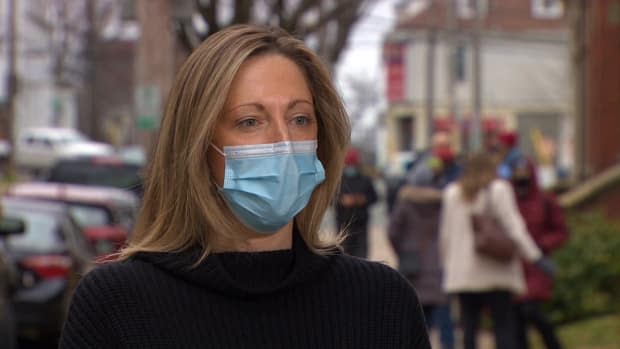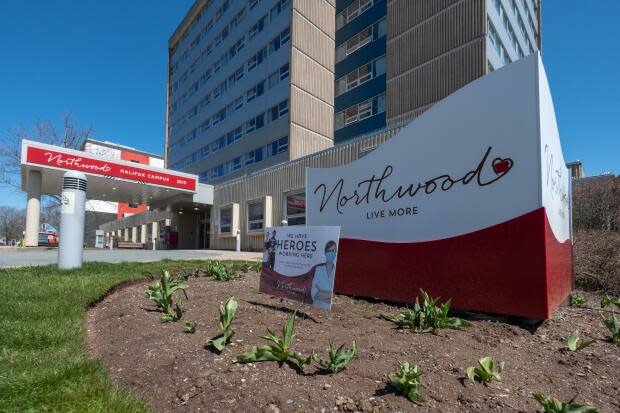N.S. long-term care study examines COVID-19 outcomes, vaccine response in seniors

Why do some long-term care residents who contract COVID-19 become seriously ill and die, while others show just mild symptoms, or none at all?
That's a question one of Nova Scotia's top infectious disease experts is looking to answer with a study that's currently underway.
"We know very little about immune systems in older adults — not just in Canada, but in the world," said Dr. Lisa Barrett, an infectious disease researcher and clinician at Dalhousie University in Halifax.
"They are a very under-studied population of people, and therefore this particular study allows us to really get in there and understand immune responses to a brand new pathogen, or virus, that these folks have never seen before."
Four long-term care facilities in the province are taking part in the study, including Northwood's campuses in Halifax and Bedford. Barrett said 356 people have agreed to participate.
"The participants and their families have been incredibly generous with their time, with consent, and, of course, with their blood, which is where we get the immune cells to study their immune systems," she said.
"It is orders of magnitude bigger than most immune studies of this type, which makes it one of our most powerful tools we have right now to study older people — not just for COVID, but immunity and frailty in general."

Blood samples were taken from residents before they got vaccinated against COVID-19, and samples will continue to be taken after their first and second doses to study their immune response.
Samples are also being taken from both residents who have contracted and recovered from COVID-19, and from people who have never had the disease.
This will allow researchers to compare the immune response in those who were never infected, those who were highly exposed but never infected, those who had moderate symptoms of COVID-19, and those who had severe symptoms.
Studying vaccine responses
Of the 65 people who died of COVID-19 in Nova Scotia, 53 of them were residents at Northwood's Halifax facility.
After a provincial review into the Northwood outbreak last year, experts recommended a more robust response to the spread of infection, like fewer shared rooms, better ventilation and more staff.
Josie Ryan, Northwood's executive director of long-term care, said those recommendations have been addressed. But the review didn't help them understand why some residents were getting sick and others weren't.
"You could have a person that was 100 years old that would go through the virus with very little symptoms, but yet somebody that was 70 would be significantly affected," she said.
"So it was a mystery sometimes because you didn't know."

Ryan said now, about 95 per cent of Northwood's residents are vaccinated against COVID-19 and researchers will continue to monitor their immunity.
"That's the big piece for me, to know if the seniors are protected by the vaccine," said Ryan.
Beyond COVID-19
The COVID-19 pandemic has been the source of unspeakable tragedy, but Barrett said it also presented an opportunity to research the immune response of a group of people who are typically left out of these kinds of studies.
The $1.9-million study is being funded through the Government of Canada through its COVID-19 Immunity Task Force.
Barrett said this research will have "huge implications" beyond COVID-19.
"We struggle to get funding to study immunity in older people, and one of the biggest killers of older people is infection, whether that's pneumonia, influenza or other infections," said Barrett.
"So while this is about COVID, it's also about making more knowledge about immunity in older people, which is a huge part of keeping people healthy and living longer."
Barrett acknowledged the study is a "silver lining that I know cannot make up for the heartbreak of people lost."
"But certainly, it does help people to feel like we're making the best of a very bad situation, I think."
MORE TOP STORIES

